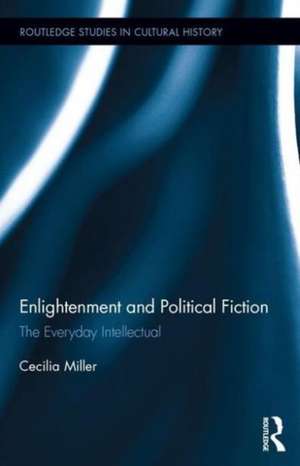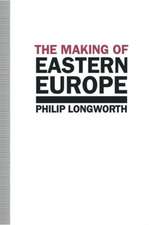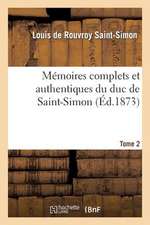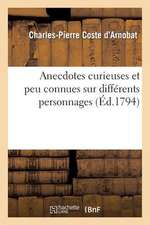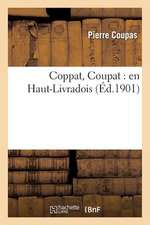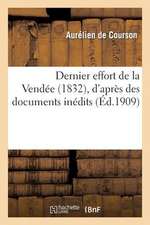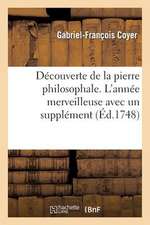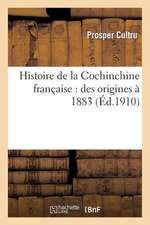Enlightenment and Political Fiction: The Everyday Intellectual: Routledge Studies in Cultural History
Autor Cecilia Milleren Limba Engleză Hardback – 6 apr 2016
Din seria Routledge Studies in Cultural History
-
 Preț: 326.49 lei
Preț: 326.49 lei -
 Preț: 311.41 lei
Preț: 311.41 lei -
 Preț: 665.25 lei
Preț: 665.25 lei -
 Preț: 311.41 lei
Preț: 311.41 lei -
 Preț: 311.41 lei
Preț: 311.41 lei -
 Preț: 325.96 lei
Preț: 325.96 lei -
 Preț: 326.78 lei
Preț: 326.78 lei -
 Preț: 313.60 lei
Preț: 313.60 lei -
 Preț: 315.70 lei
Preț: 315.70 lei -
 Preț: 310.45 lei
Preț: 310.45 lei - 9%
 Preț: 934.83 lei
Preț: 934.83 lei -
 Preț: 280.29 lei
Preț: 280.29 lei - 9%
 Preț: 276.16 lei
Preț: 276.16 lei -
 Preț: 341.39 lei
Preț: 341.39 lei -
 Preț: 356.84 lei
Preț: 356.84 lei - 30%
 Preț: 848.15 lei
Preț: 848.15 lei - 5%
 Preț: 1290.15 lei
Preț: 1290.15 lei - 30%
 Preț: 849.37 lei
Preț: 849.37 lei - 25%
 Preț: 858.29 lei
Preț: 858.29 lei - 26%
 Preț: 822.34 lei
Preț: 822.34 lei -
 Preț: 438.56 lei
Preț: 438.56 lei - 28%
 Preț: 819.91 lei
Preț: 819.91 lei - 18%
 Preț: 1109.99 lei
Preț: 1109.99 lei - 18%
 Preț: 1055.51 lei
Preț: 1055.51 lei - 28%
 Preț: 820.73 lei
Preț: 820.73 lei - 18%
 Preț: 1058.79 lei
Preț: 1058.79 lei - 18%
 Preț: 1068.18 lei
Preț: 1068.18 lei - 18%
 Preț: 1058.65 lei
Preț: 1058.65 lei - 18%
 Preț: 1057.89 lei
Preț: 1057.89 lei - 18%
 Preț: 1110.74 lei
Preț: 1110.74 lei -
 Preț: 487.02 lei
Preț: 487.02 lei -
 Preț: 412.37 lei
Preț: 412.37 lei - 18%
 Preț: 1115.51 lei
Preț: 1115.51 lei -
 Preț: 489.10 lei
Preț: 489.10 lei - 18%
 Preț: 1057.09 lei
Preț: 1057.09 lei -
 Preț: 281.63 lei
Preț: 281.63 lei -
 Preț: 431.57 lei
Preț: 431.57 lei - 18%
 Preț: 1110.61 lei
Preț: 1110.61 lei - 18%
 Preț: 1054.71 lei
Preț: 1054.71 lei -
 Preț: 397.66 lei
Preț: 397.66 lei -
 Preț: 440.69 lei
Preț: 440.69 lei - 18%
 Preț: 1060.19 lei
Preț: 1060.19 lei -
 Preț: 442.12 lei
Preț: 442.12 lei - 18%
 Preț: 1052.38 lei
Preț: 1052.38 lei
Preț: 1112.34 lei
Preț vechi: 1356.52 lei
-18% Nou
Puncte Express: 1669
Preț estimativ în valută:
212.85€ • 227.61$ • 177.47£
212.85€ • 227.61$ • 177.47£
Carte tipărită la comandă
Livrare economică 17 aprilie-01 mai
Preluare comenzi: 021 569.72.76
Specificații
ISBN-13: 9781138954175
ISBN-10: 1138954179
Pagini: 296
Dimensiuni: 152 x 229 x 23 mm
Greutate: 0.54 kg
Ediția:1
Editura: Taylor & Francis
Colecția Routledge
Seria Routledge Studies in Cultural History
Locul publicării:Oxford, United Kingdom
ISBN-10: 1138954179
Pagini: 296
Dimensiuni: 152 x 229 x 23 mm
Greutate: 0.54 kg
Ediția:1
Editura: Taylor & Francis
Colecția Routledge
Seria Routledge Studies in Cultural History
Locul publicării:Oxford, United Kingdom
Public țintă
Postgraduate and UndergraduateCuprins
Introduction 1. Don Quixote (1605, 1615), Rationality, and Forms of Government 2. Simplicissimus (1668, 1669), Religious Toleration, and Friendship 3. Gulliver’s Travels (1726, amended 1735), Science, and Social Class 4. Candide (1759), Sexuality, and the Modern Individual 5. The Betrothed (1825-1827, 1840-1842), Revolution, and the Perfectibility of the Human Mind. Conclusion.
Descriere
This book maintains that it was not passive reception but active participation of readers—including those who listened to fiction read out loud—that fostered the Enlightenment. The decision to engage in intellectual debates, grounded in ideas often first found in fiction, allowed everyday people to participate in the questioning, and eventually the decision-making, of their own states.
